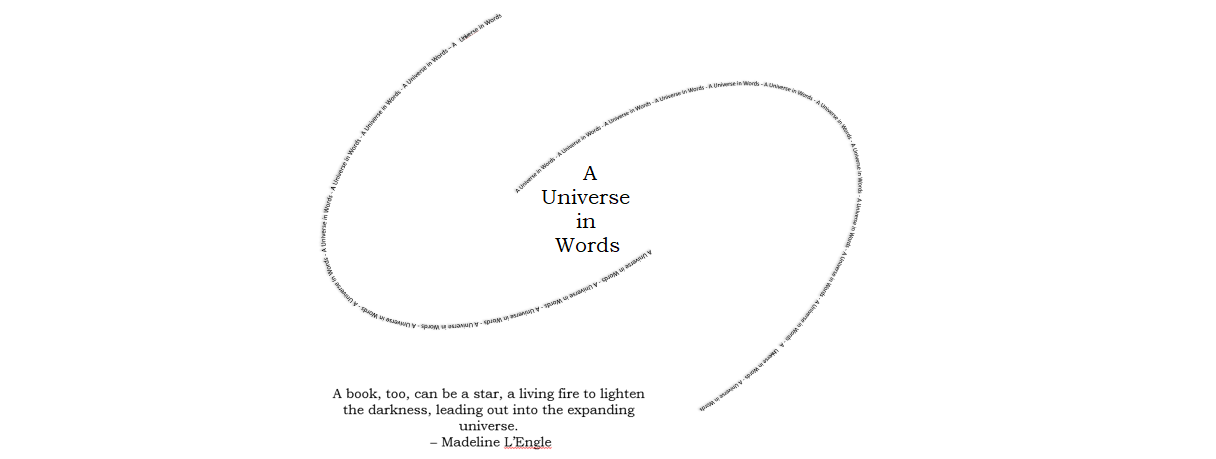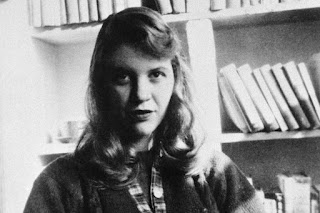Woods and Forests in Angela Carter's 'Overture and Incidental Music'
 I'm currently reading Angela Carter's collection of stories Burning Your Boats and have so far incredibly enjoyed it. Now, however, I have stumbled upon a few paragraph which I find absolutely breath-taking and want to share with you. They are from the story 'Overture and Incidental Music'.
I'm currently reading Angela Carter's collection of stories Burning Your Boats and have so far incredibly enjoyed it. Now, however, I have stumbled upon a few paragraph which I find absolutely breath-taking and want to share with you. They are from the story 'Overture and Incidental Music'.'The English wood is nothing like the dark, necromantic forest in which the Northern European imagination begins and ends, where its dead and the witches live, and Baba-yaga stalks about in her house with chicken's feet looking for children in order to eat them. No. There is a qualitative, not a quantitative, difference between this wood and that forest. The difference does not exist just because a wood contains fewer trees than a forest and covers less ground. That is just one of the causes of the difference and does not explain the effect of the difference.
For example, an English wood, however marvellous, however metamorphic, cannot, by definition, be trackless, although it might well be formidably labyrinthine. Yet there is always a way out of a maze, and, even if you cannot find it for a while, you know that it is there. A maze is a construct of the human mind, and not unlike it; lost in the wood, this analogy will always console. But to be lost in the forest is to be lost to this world, to be abandoned by the light, to lose yourself utterly with no guarantee you will either find yourself or else be found, to be committed against your will - or, worse, of your own desire - to a perpetual absence from humanity, an existential catastrophe, for the forest is as infinitely boundless as the human heart.
But the wood is finite, a closure; you purposely mislay your way in the wood, for the sake of the pleasure of roving, the temporary confusion of direction is in the nature of a holiday from which you will come home refreshed, with your pockets fulll of nuts, your hands full of wildflowers and the cast feather of a bird in your cap. That forest is haunted; this wood is enchanted.' p.275-6I think this description of the difference between the forest of fairytales and the wood of poetry is amazing. Northern European fairytales as collected by the Brothers Grimm, such as Red Riding Hood and Hansel & Gretel, are originally incredibly dark and the forest is always a dangerous place from which you will never return the way you entered. The 'English wood' that Carter talks about is the wood of the Romantic poets, where one encounters the sublimity of nature in a safe and comfortable environment. Carter manages to describe in a few paragraphs a fundamental difference that people, qualitatively, feel. When you enter a forest it is very different from entering a wood. Think, if you will, in literary terms of the difference between Shakespeare's wood in A Midsummer Night's Dream, a work that has, perhaps more than any other, defined the English wood, and Fangorn Forest in Tolkien's The Lord of the Rings (below).
 Where a wood is something we construct, a forest very much grows in the way a soul does. It grows crooked and dark in some corners, has clearings, sprouts mushrooms and flowers equally. You can get lost in yourself and your own thoughts because we do not consciously create ourselves. Carter makes this very clear by reminding her readers of the difference between a maze and a labyrinth. A labyrinth only allows you one path and that one only. That path will lead you from the beginning to the end without any free choice on your path. It doesn't give you the option to casually stray and still find your way. A maze, on the other hand, allows you the choice of how to reach the end. You can go left here and then ultimately later you will have to go right to make sure you'll reach the end, but it's up to you when.
Where a wood is something we construct, a forest very much grows in the way a soul does. It grows crooked and dark in some corners, has clearings, sprouts mushrooms and flowers equally. You can get lost in yourself and your own thoughts because we do not consciously create ourselves. Carter makes this very clear by reminding her readers of the difference between a maze and a labyrinth. A labyrinth only allows you one path and that one only. That path will lead you from the beginning to the end without any free choice on your path. It doesn't give you the option to casually stray and still find your way. A maze, on the other hand, allows you the choice of how to reach the end. You can go left here and then ultimately later you will have to go right to make sure you'll reach the end, but it's up to you when.I didn't plan to go into a lot of analysis of this passage and I might come back to it once I've finished the collection, but I just didn't want to pass up on the chance of sharing one of my new favourite passages in literature with you. Carter's writing style can be a bit much, but God, it's beautiful and true sometimes.



Comments
Post a Comment